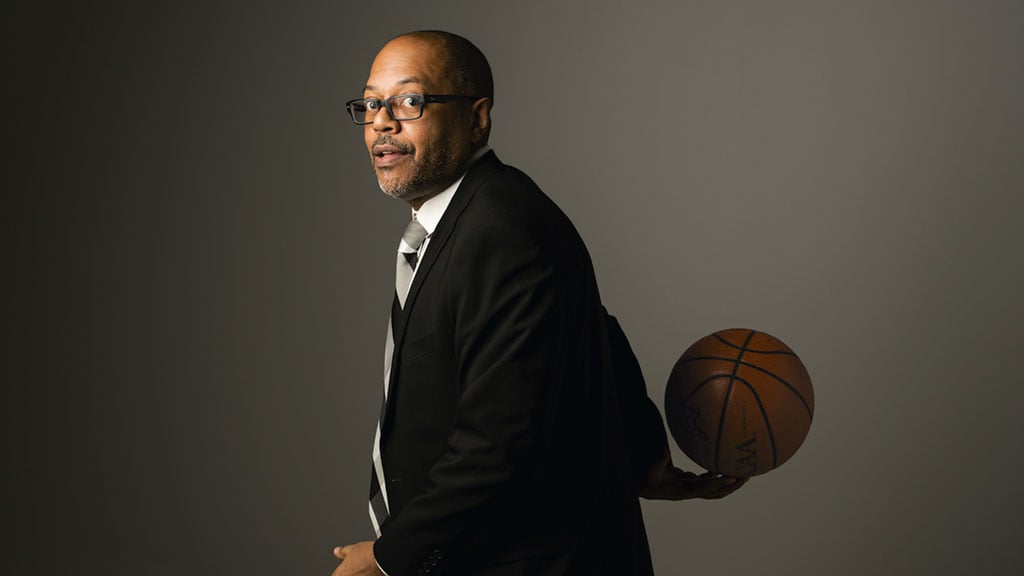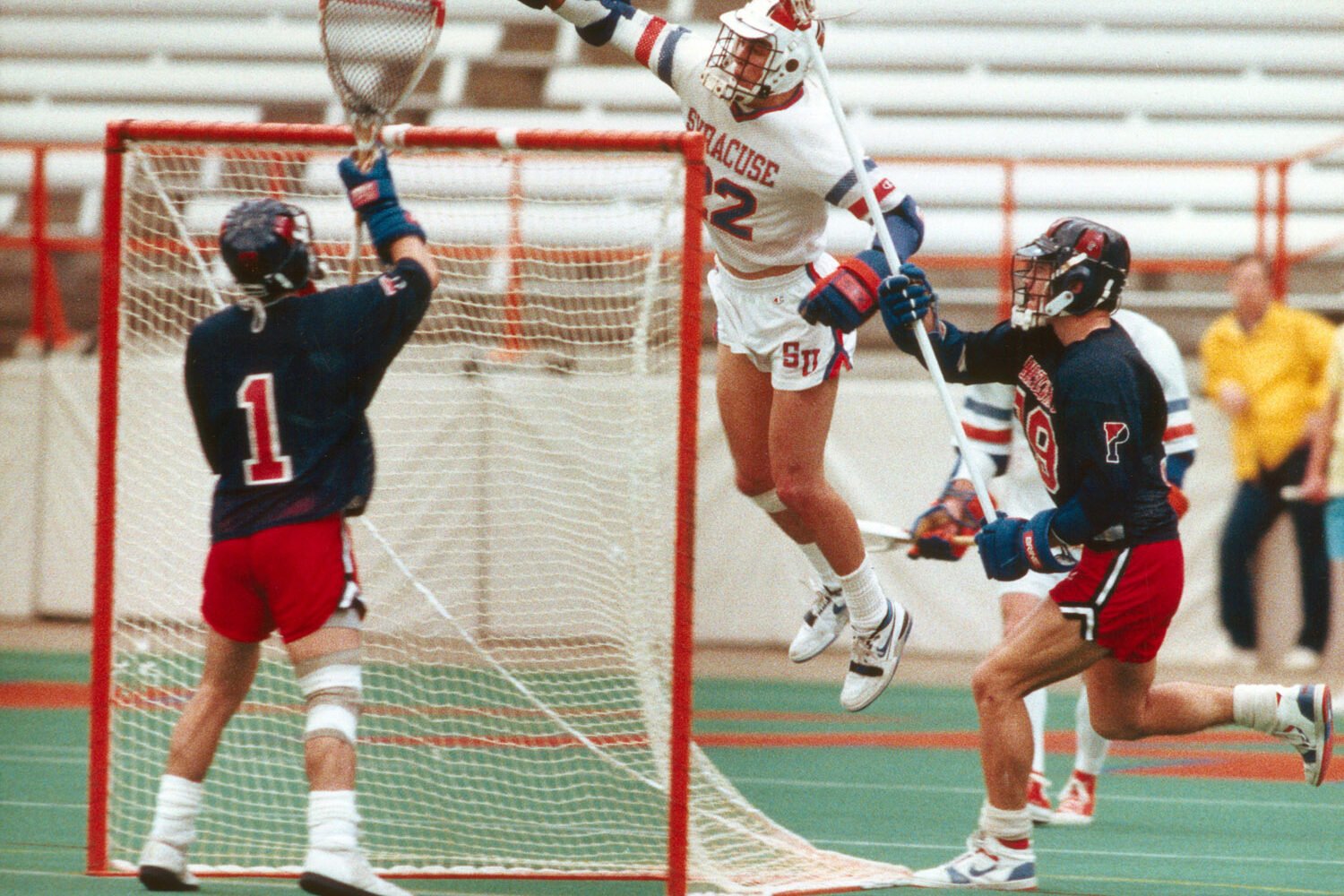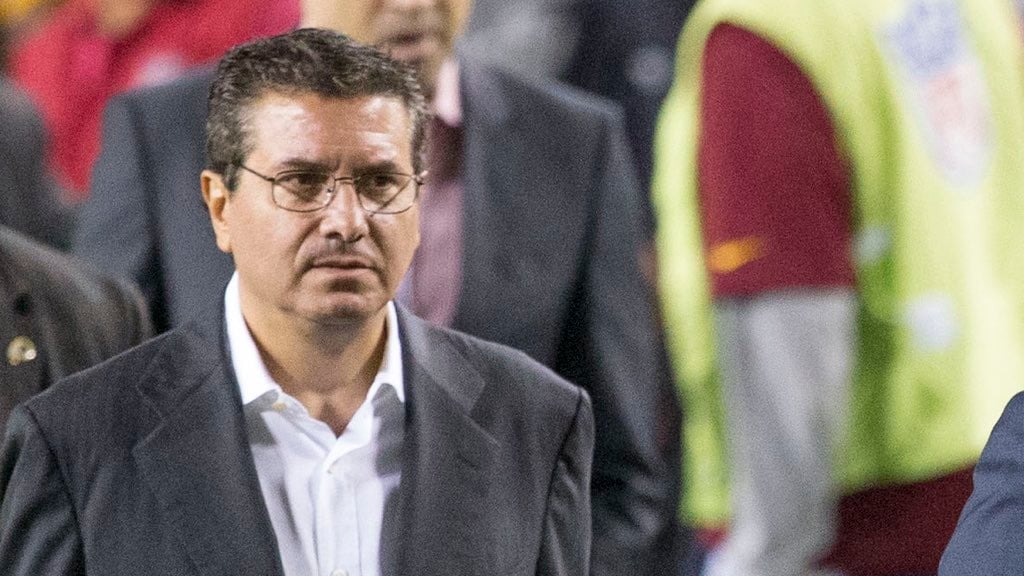When Kevin Merida attended Boston University in the 1970s, he and some friends started an alternative newspaper called Blackfolk. “It came out irregularly,” he says, laughing, “but we poured so much into it.” The newspaper, which served the university’s small community of African-American students, appeared a couple of years after Boston was roiled by protests over busing students in order to desegregate public schools. (A BU grad student named Bill O’Reilly covered the crisis for another independent student publication, the Daily Free Press.) The Blackfolk staff wrote about admissions, affirmative action, and Gil Scott-Heron. They invited prominent African-American journalists to town and convened conversations.
“So we did things of the kind that I hope to do here,” Merida says.
We’re sitting in Merida’s sparse office in ESPN’s facility on Desales Street, Northwest, where he’s preparing to launch the Undefeated, a national digital publication dedicated to the intersection of sports, race, and culture, which will launch May 17. On one desk are two computer monitors that don’t appear to be plugged in. On another is a MacBook and a copy of Wharton professor Kenneth L. Shropshire’s 1998 book, In Black and White, about how African-Americans are underrepresented in the corporate realm of sports.
Merida is the second editor to try to get the Undefeated off the ground. The provocative columnist and talking head Jason Whitlock was the first to lead the publication known informally and perhaps fatally as “the black Grantland,” after the widely lauded site, run by Bill Simmons and owned by ESPN, that also combined sports opinion with cultural coverage.
Whitlock’s vision of the site as a corrective to aspects of African-American culture he disliked (hip-hop, the N-word) repelled some potential hires. And his calamitous managerial style, catalogued in horrific detail by Deadspin’s Greg Howard—Whitlock accused employees of disloyalty when they disagreed, and he distributed a mystifying “playbook” filled with inspirational quotes from himself—choked the baby in its crib. “ I think the original failures of the Undefeated were inextricable from the hiring of Jason Whitlock,” Howard, now a reporter at the New York Times, says.
Enter Merida, 59, who had diligently built a sterling career at the Washington Post. A solid reporter, a thoughtful columnist, and an innovative editor, he was named Post managing editor in 2013, and many in the newsroom thought he might eventually run the paper. Then as he was attending the Newport Jazz Festival last summer, ESPN executive vice president Marie Donoghue called to pitch him on the Undefeated.
“I love the Post,” Merida says. “Nobody loved it more than me.” But watching colleagues such as John Harris, Jim VandeHei, and Ezra Klein leave to found successful digital ventures like Politico and Vox, he felt the itch to start something new himself. “I thought if there was ever a chance to do something like that, maybe that might be something I’d want to do.”
Merida announced he was leaving in October, over the protests of executive editor Martin Baron, who not only couldn’t convince Merida to stay but also watched him take a number of colleagues with him—Clinton Yates, Soraya Nadia McDonald, and Lonnae O’Neal among them. Michael Fletcher, Merida’s roommate at BU, also jumped, as did Steve Reiss, who had already left the Post for a business publication in Chicago, and former columnist Jason Reid. They all joined former Post sportswriter Mike Wise, who had already signed up with Whitlock.
The Undefeated staff—which includes almost all of Whitlock’s original crew as well as recruits from BuzzFeed, Yahoo Sports, National Geographic, and Fusion—will number around 40 when the site launches. “They deserve a chance to finally let this thing come out into the world,” Merida says.
Stories will cover four broad topics: sports, culture, life at historically black colleges and universities, and an innovation called the Uplift—what Merida says will be “a regular stream of joy.” The site will be calibrated, at least initially, toward African-Americans, an audience ESPN president John Skipper has said it serves well on TV but not digitally, where conversations about sports increasingly and more openly discuss race. If ESPN doesn’t build for its audience a place to discuss such topics, the network seems to sense, it will gather elsewhere.
I don’t trust ESPN not to screw up
Merida’s staff will have the advantage of ESPN’s established TV channels, but to hold onto the cohort online will require using social media and video to complement the Undefeated’s home page. The site will pursue long-form narratives, which Reiss will oversee, but Merida says, “For me, all ambition can’t be long-form. I’ve said, ‘Let’s pioneer short-form ambition.’ ”
The kind of experiments he has in mind go as far as verse: Washington poet Kwame Alexander has written an original poem for the site, and Alexander and Merida are exploring more ways to incorporate spoken word into the Undefeated’s coverage.
Another ambition is to extract unexpected conversations from athletes, who too often deploy an “it is what it is” stoicism to punt on journalists’ queries. “Our questions are not good enough,” says Merida, who hopes to pair stars with surprising interlocutors—Miami Heat player Dwyane Wade with Ta-Nehisi Coates, say, or LeBron James with ballet dancer Misty Copeland—to get at their private lives. “You know, what would it look like to have a series of portraits asking each athlete about the first time that they fell in love?”
ESPN’s record with affinity sites doesn’t favor the Undefeated. “I don’t trust ESPN not to screw up,” says Howard. Grantland crumbled after ESPN and Simmons split acrimoniously. Former Times polling expert Nate Silver’s FiveThirtyEight, which tracks sports as well as politics, has had underwhelming readership—at least before this year’s election. ESPN has said high traffic isn’t how it intends to sell FiveThirtyEight to advertisers, but last fall it also announced it planned to lay off 300 staffers, reportedly because it was getting squeezed by higher prices for programming and lower revenue as cable customers cut the cord.
But hiring Merida “looks like the best way forward,” Howard says, noting that the Post‘s reporting on the Black Lives Matter movement has been “among the best in the country” and that Merida has a record of championing diversity at his former employer. “You have to assume that a guy who was partly in charge of that and brings a bunch of his boys and girls with him, that they’ve got to be on their way.”
Merida has a congenital advantage over Simmons and Whitlock, who excelled at provocation: He’s a low-key personality with a reporter’s disposition. (By contrast, his wife, Donna Britt, was one of the Post’s most excellently voicey voices.) Asked how he plans to avoid Simmons’s and Whitlock’s fates, Merida says, “My plan is to be successful.”
It’s no accident that, while the Undefeated will be based in DC, Merida will have an important mediator, managing editor Raina Kelley, at ESPN’s mother ship in Bristol, Connecticut. His hope, he says, is to build something that outlasts corporate politics—and his leadership. He has told the staff: “It’s not Kevin Merida’s Undefeated. It’s all of ours.”
That’s an answer worthy of the post-game interviews Merida hates, but as any athlete knows, it’s the kind of talk that’ll get the Undefeated onto the field.




















